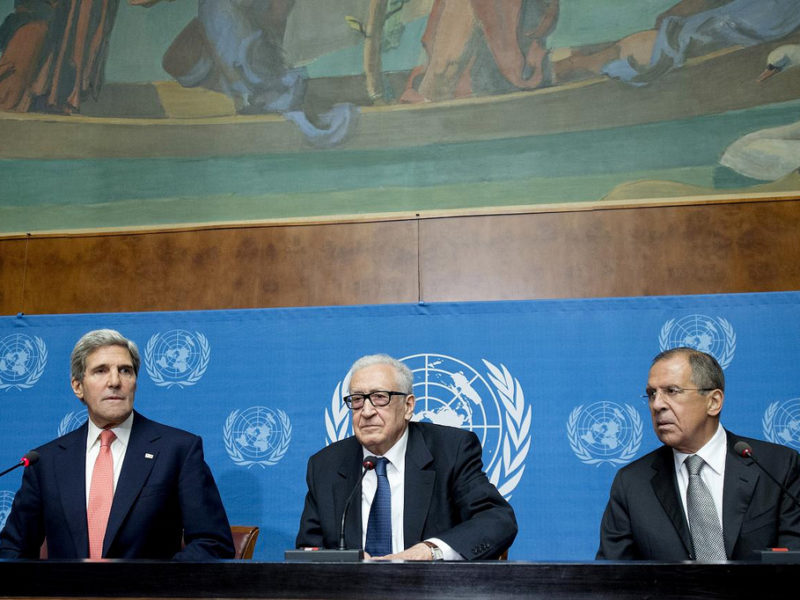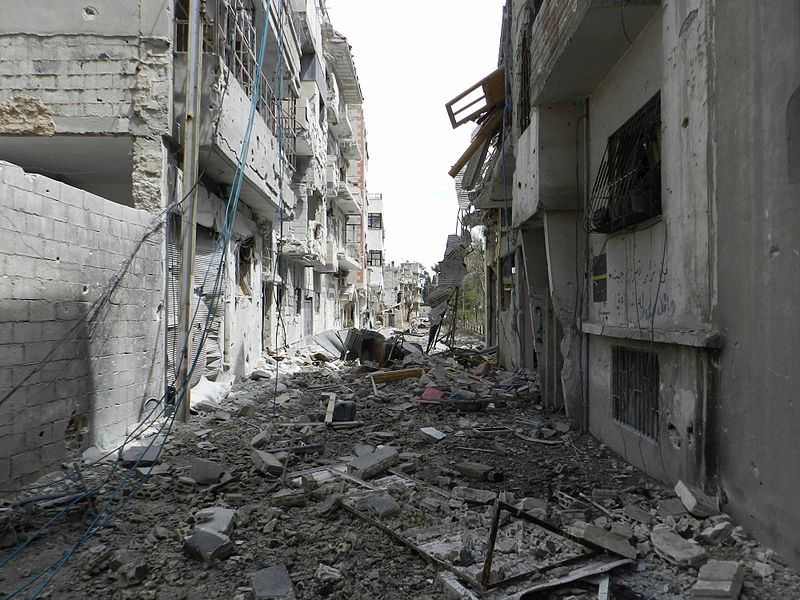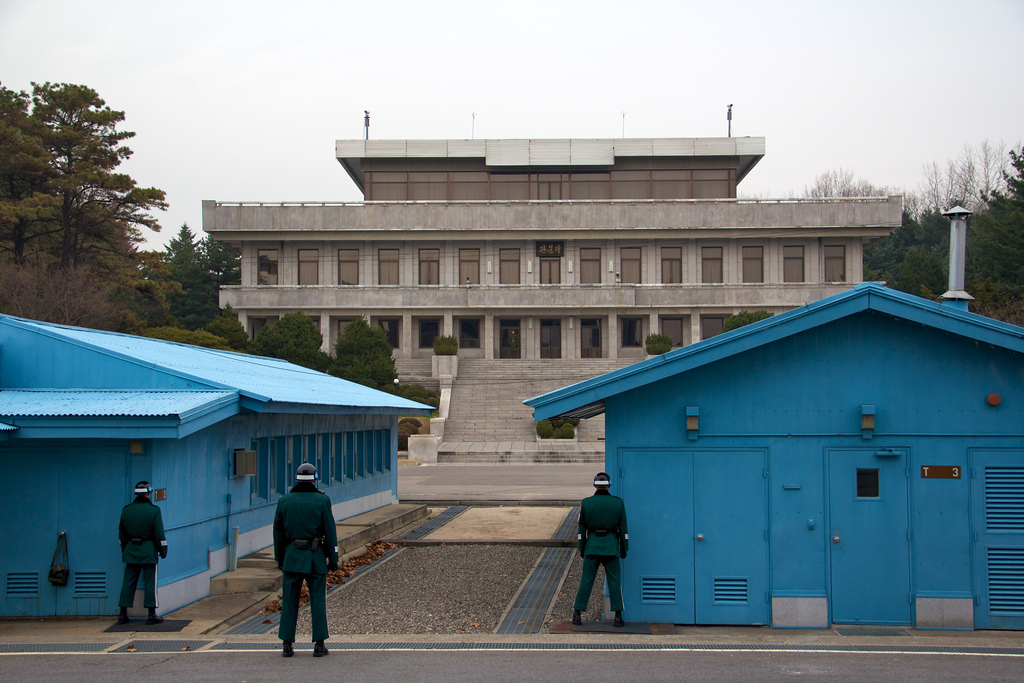By Deborah Avant for Denver Dialogues.
Cullen Hendrix wrote a post a few weeks ago (“Shit Happens”) on the difficulty of predicting “rare” events. It is a smart reflection on how he reacted when asked by policy makers to anticipate what might lead to some “bad thing.” Although there is no light between Hendrix and I when selecting cocktails, I realized I approach such questions from policy makers in a somewhat different manner.
First, though many social scientists do adopt probabilistic assumptions and identify general tendencies that make something more or less likely to occur, one can find many different takes on which general tendencies are relevant. Hendrix outlines a reasonable take on a rationalist argument: “In order to understand why things happen, we must identify the relevant actors, identify their interests, and then figure out how the way their interactions are structured. Then, we assume actors pursue strategies that maximize the likelihood that their preferred outcome will come to pass.”
But general tendencies need not be rationalist. Different theoretical lenses focus on different actors and chart different logics that can drive quite distinct general tendencies. Take Dan Drezner’s analysis of what effect a zombie infestation would have on global politics (surely the ultimate rare event). Drezner draws different predictions from various prominent IR theory approaches: Realists may expect no “real” change (as zombies would seek power just as humans do). Liberals could anticipate a counter-zombie regime (zombie infestations being a significant externality and all). Constructivists might presume humans to draw together around existing norms and perhaps even socialize re-animated corpses to abide by said norms, thereby changing the game altogether (though they would also need to counter zombie efforts to socialize humans). Drezner also entertains contending explanations from domestic politics, bureaucratic politics, and psychology, but you get the drift.
Each of these predictions is backed by research with significant empirical support. Any one event (or event trajectory) may contain facets consistent with each approach. Rather than choosing one (or racing them against one another), we could explain the various logics and evaluate what evidence might help policy makers make inferences about the future. For instance, evidence of zombie-human alliances could indicate the potential usefulness of balancing theories; evidence that some zombies restrain themselves from human brain consumption could validate the potential for socialization. Drezner missed interesting new work on networks (apologies for the shameless self-promotion), spaces, transnational coalitions, and collective mobilization, but the point is the same. To leverage academic work for a policy question about the future, I would begin by imagining the future through these different lenses and look for evidence that supports or challenges each.
Second, events at the macro level are often the product of micro level dynamics. The level from which one decides to evaluate a question – and how to understand the potential interactions between levels – suggests another way to disaggregate prediction. Thinking about “war” is interesting here. We often think of war at the macro level – as an overarching effort led by leaders of one collective group against another. Because it is expensive to both collectives, many assume that it is undesirable and therefore likely to be avoided. An explosion of writing on civil war, though, has demonstrated that what we count as war is often the accumulation of “micro-dynamics” – or more locally understood violence. Attributing violence to the two sides’ failure to agree misses the way in which opportunistic political leaders may use violence to further individual rather than collective ends. It also misses how local dynamics – police or other local officials taking sides, score settling, and other opportunistic action by individuals – can fuel violence that is understood as part of the macro struggle even though it is not driven by the leadership at all. These micro processes of violence are not weird or unobservable, but they may fall outside what many political scientists observe. So what is unexpected from one level of analysis may be more expected from another.
Ultimately, though, we are often surprised (particularly these days when shit is happening everywhere) so I concur with Hendrix that we should be circumspect about our abilities. Beyond that, judgment about what is likely to happen – and thus which policy to pursue – is often, as Drezner puts it, “more art than science.” Pragmatists from William James and Charles Pierce to Hans Joas argue that the ability to weigh evidence – making use of both symbolic and intuitive reasoning – is key to good political judgement. Rather than giving policy makers our best answer, then, we could also show them our work and thus help them integrate theoretical logic with their own knowledge and intuition.








3 comments
You’re making this harder than it needs to be. I’ve found policy prediction in foreign relations to be quite simple. You look for the most powerful DOMESTIC political constituency, and their foreign relations wishes will get translated into concrete policy. A rich and determined Israel lobby thrives on the threat they’ll support any given candidate’s opponent, the Cuban community operating as a monolithic voting bloc in a swing state or a growing Hispanic demographic has considerable influence..Absent any powerful expat or ethnic constituency, foreign policy preferences default to perhaps the most powerful constituency of all—businesses which either operate overseas, seek capital from other countries or depend heavily on international trade. Absent either a powerful voting bloc or a business constituency, there will be no foreign policy to speak of, which does not preclude our State Department or any other nation’s foreign ministry from issuing statements of one kind or another. But little or nothing concrete. And of course proximity always plays its part. Compare and contrast Rwanda, DRC, Darfur, Rohingya versus the Balkans, Ukraine, Cuba, anything to do the Gulf states and of course, the enormous amount of diplomacy we expend on trade.
You’ll get the odd foreign policy initiative which doesn’t seem to fit, like the Libya intervention, but my Occam’s Razor conclusion is that it was undertaken with a political campaign in mind and somebody mistakenly thought it would be both easy and without significant consequence. Look around today or run this model back throughout US history (with all due homage to George Herring here) and I think you’ll find these simple assumptions quite reliable in predicting foreign policy choices.
With one caveat. Authoritarian regimes need not consider domestic political constituencies, In these cases, replace my model described above with the power geopolitics in any given region and I think you’ll find that you seldom go wrong.